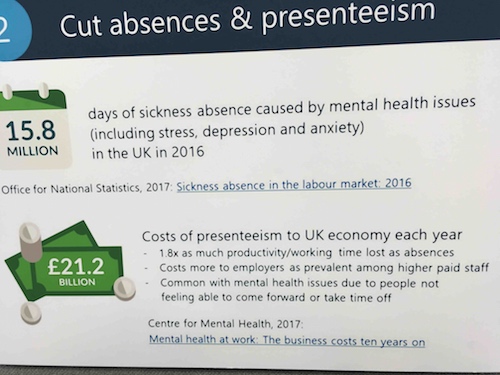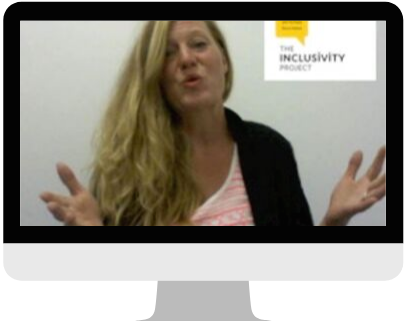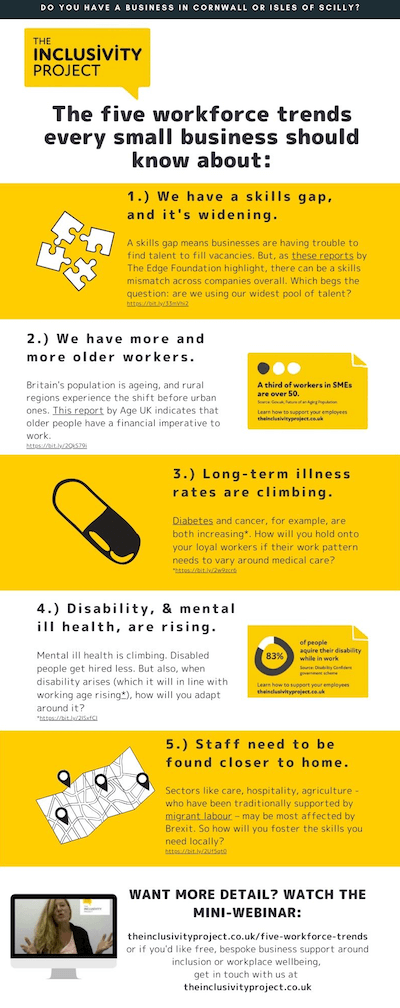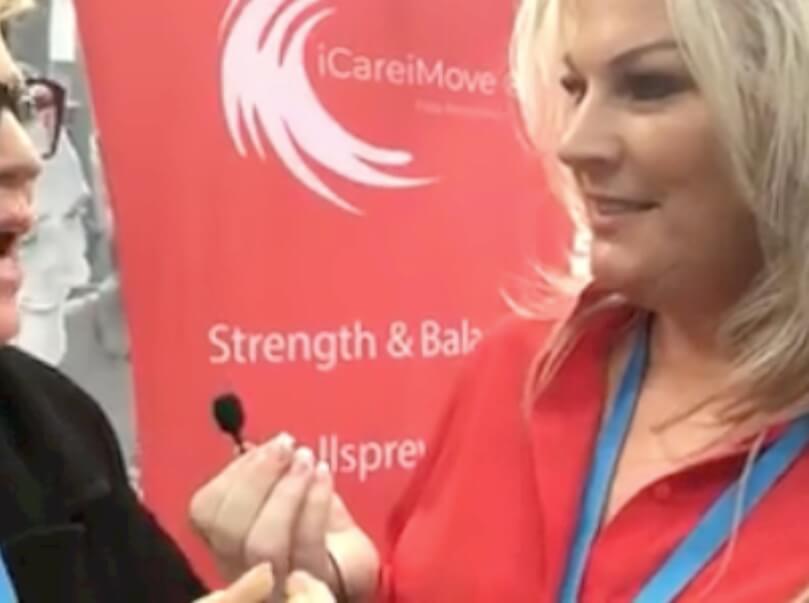In a week where The Inclusivity Project met with Dame Carol Black, who holds a high-level policy advisory position on health and work and is Chair of the Centre for Ageing Better… and the DWP rewrote the parameters of sick pay to allow people to take immediate time off for COVID-19, before promptly turning everyone into remote workers… we’re thinking about presenteeism.
What is ‘presenteeism?’
‘Presenteeism’ is what used to happen, before we got scared of contagion. It’s when your workers would show up ill, and stagger through their work day, even though they were unproductive. Out of duty to you and your business.
The problem is, contrary to traditional thinking, presenteeism isn’t good for business. In this post, we’re going to look at why not, and what can be done about it.
Do we even know how to recognise when someone is unwell?
Obviously, when there’s something infectious doing the rounds, people need to be able to say without shame or stoicism, that they need time off.
But what about all the less visible things that impact our productivity? Depression, menopause, long-term health conditions, disabilities, bereavements, fatigue issues, insomnia, caring for others, stress, anxiety, periods… the list goes on.
There are myriad reasons why an employee might not be firing on all cylinders. And that means: reduced productivity.
But surely, absenteeism is worse for business?
The Centre for Mental Health report in 2017, ‘Mental Health at Work, the Business Costs 10 Years On’, says that presenteeism:

- Costs employers 1.8x as much productivity/working time lost as absences.
- Costs more to employers, as it’s more prevalent among higher-paid staff
- Is more common with mental health issues than other ‘visible’ health issues, because of the stigma around coming forward and asking for time off.
Our team from The Inclusivity Project were also recently at Cornwall Council’s Healthy Workplace Awards, where a study was mentioned that sheds further light on this issue, and actually shows that it’s getting worse over time: Vitality health insurance commissioned RAND to conduct a survey that finds that employers are losing on average 38 productive days per employee, owing to absence or presenteeism. This adds to an upward trend observed since 2014, when employees were losing 23 days of productive time.
There are, however, multiple sources of information and they often differ, though they all agree that it’s shockingly costly.
- A CIPD report from 2018 found that presenteeism has tripled since 2010.
- A report from Nottingham Business School puts the price of presenteeism at £4,000 per employee.
- And the Centre for Mental Health paper puts presenteeism at double the annual cost of absenteeism.
How are businesses finding ways around it?
What stops businesses addressing it?
We know, especially from the 150-odd Cornish SMEs that Beacon has surveyed, that small business owners are scared of saying and doing ‘the wrong thing’, and potentially frightened of litigation too. Perhaps bosses simply don’t know how to talk about illness – it is something bodily and therefore somewhat ‘private’ and personal.
And on the employee side, we’re also shy about seeming weak or unavailable. Craig Fearn – Business Mental Wellbeing – says:
“We’re an ageing population, and we hold onto that ‘stiff upper lip’ ethos. We need to get people talking.“
If we’re too scared to admit we have flu, what about fluctuating health, long-term health conditions and disabilities?
No wonder, then, that employers struggle to communicate and adapt around disabilities and long-term health conditions, some of which might make someone’s availability to work fluctuate unpredictably. Neil Chamberlain, from accountancy firm Zamu, in conversation with Beverley Futtit from care sector organisation CAHSC, calls this communication gap “a cultural difference” between people with and without a disability.
Do small to medium sized enterprises (SMEs) face the challenge of presenteeism differently?
We mentioned in a previous article on the construction industry that many people we spoke to who were self-employed laughed at the idea of taking a sick day, and one man even told us he was in work that day with his arm out of plaster the day before because his firm, which was small, depended on him and put pressure on him to be there.
What do you think?
Do you think small businesses have a different take on this? Why not jump into the comment thread and tell us your view.
__________________________
Have you already signed up to our newsletter…?

When you sign up, you get a free exclusive 10-minute video training, The Five Workforce Trends Every Small Business Should Know About, as well as getting a summary of the same info in time-saving, easy-to-digest infographic format.

You’ll also hear about all opportunities to get business support if you’re in Cornwall or Isles of Scilly, and to be the first to hear about the research that comes out of The Inclusivity Project.


Recent Comments